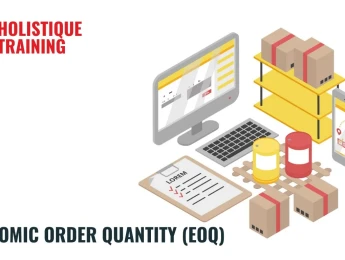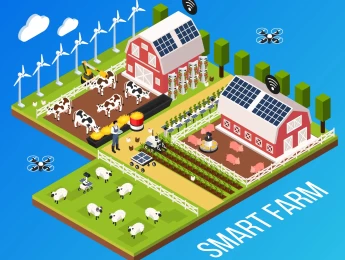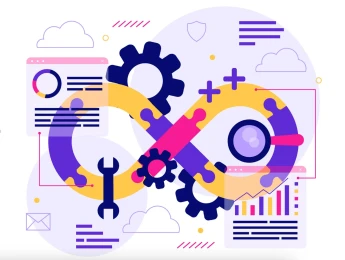Introduction
Effective task management is the cornerstone of productivity and success in both personal and professional endeavors. In today's fast-paced and interconnected world, the ability to manage multiple tasks efficiently is a valuable skill that can lead to enhanced productivity, reduced stress, and improved outcomes. However, managing tasks effectively involves more than just creating to-do lists; it requires strategic planning, prioritization, organization, time management, and clear communication. This article explores the importance of task management, common challenges faced when managing multiple tasks, and practical strategies to improve task organization, time management, and communication within teams. By mastering these essential skills, individuals and teams can navigate complex workflows, stay focused, and achieve their goals with greater ease.
Why Is Task Management Important?
Task management is essential because it helps individuals and teams stay organized, focused, and productive. Here are some key reasons why task management is important:
- Optimizing Productivity: Effective task management ensures that tasks are completed in a timely manner, avoiding delays and bottlenecks that can hinder productivity.
- Prioritization: Task management helps individuals prioritize their tasks based on importance, urgency, and deadlines, ensuring that critical tasks are completed first.
- Resource Allocation: It allows for efficient allocation of resources such as time, effort, and budget to tasks,maximizing efficiency and minimizing waste.
- Time Management: Task management techniques help in managing time effectively, avoiding procrastination, and ensuring that deadlines are met.
- Reducing Stress: Organized task management reduces stress by providing a clear roadmap of what needs to be done and when, reducing the feeling of being overwhelmed.
- Improved Collaboration: Task management facilitates better collaboration within teams by assigning tasks, tracking progress, and promoting communication and accountability.
- Goal Achievement: By breaking down large goals into manageable tasks, task management contributes to the achievement of long-term objectives in a structured and systematic manner.
Overall, task management is crucial for individuals and organizations to achieve their goals efficiently, maintain focus, and adapt to changing priorities effectively.
What Are Common Challenges in Managing Multiple Tasks?
Managing multiple tasks can be challenging due to various factors. Here’re some common challenges individuals face:
- Prioritization Dilemma: Deciding which tasks are most important and need immediate attention can be difficult, leading to confusion and inefficiency.
- Time Constraints: Balancing multiple tasks within limited time frames often results in time management issues, causing some tasks to be neglected or rushed.
- Overload and Overwhelm: Having too many tasks at once can overwhelm individuals, leading to stress, reduced focus, and lower productivity.
- Lack of Clarity: Unclear task instructions or goals can make it challenging to understand what needs to be done, leading to delays and errors.
- Task Dependencies: Managing tasks that are interdependent or require input from others can be complex, especially if communication or coordination is lacking.
- Interruptions and Distractions: Constant interruptions, such as emails, calls, or unexpected tasks, can disrupt workflow and derail progress on existing tasks.
- Difficulty in Delegation: Knowing when and how to delegate tasks effectively can be challenging, especially if there's a lack of trust or clarity in roles and responsibilities.
- Scope Creep: Tasks may expand in scope or complexity over time, making it challenging to stay within initial time and resource estimates.
- Inadequate Tools or Systems: Using inefficient task management tools or lacking a structured system for organizing tasks can hinder productivity and clarity.
- Poor Time Estimation: Underestimating the time required to complete tasks can lead to unrealistic schedules and missed deadlines.
Addressing these challenges requires adopting effective task management strategies, prioritization techniques, clear communication, and utilizing suitable tools and systems to streamline workflow and improve overall productivity.
How to Prioritize Tasks Effectively?
Prioritizing tasks effectively involves several key steps and techniques. Here's a guide on how to prioritize tasks efficiently:
- List all tasks: Start by making a list of all the tasks you need to complete. This could include work-related tasks, personal errands, or any other responsibilities.
- Assess importance and urgency: Evaluate each task depending on its importance and urgency. Important tasks contribute directly to your goals, while urgent tasks have imminent deadlines.
- Use priority frameworks:
- Eisenhower Matrix: categorizes tasks into four distinct categories: urgent and important, important but not urgent, urgent but not important, and neither urgent nor important. It emphasizes prioritizing tasks in the urgent and important quadrant as a primary focus.
- ABC prioritization: Assign letters (A, B, C) to tasks based on their priority. A tasks are the most important, B tasks are moderately important, and C tasks are less critical.
- Consider impact and consequences: Think about the potential impact of completing or not completing each task. Focus on tasks that have a high impact or severe consequences if not addressed promptly.
- Assess resources: Consider the resources (time, effort, budget, etc.) required to complete each task. Prioritize tasks that align with your available resources and capabilities.
- Set deadlines: Assign deadlines to tasks, especially those that are time-sensitive or have external dependencies. Use deadlines to instill a sense of urgency and accountability.
- Review and adjust priorities: Regularly review your task list and adjust priorities as needed. Be flexible and responsive to changes in circumstances or new priorities that arise.
- Focus on one task at a time: Avoid multitasking as much as you can and focus on completing one task before moving on to the next. This helps maintain concentration and improves efficiency.
- Delegate when possible: If certain tasks can be delegated to others, consider doing so to free up your time for more critical activities. Effective delegation is a key aspect of prioritization.
- Utilize task management tools: Use task management tools or apps to organize and prioritize tasks, set reminders, track progress, and collaborate with others if needed.
Table 1:Effective Task Prioritization Strategies
Step | Description |
List all tasks | Make a comprehensive list of all tasks, including work-related tasks, personal errands, or other responsibilities. |
Assess importance and urgency | Evaluate tasks based on importance (direct contribution to goals) and urgency (imminent deadlines). |
Use priority frameworks | Utilize techniques like the Eisenhower Matrix (categorizing tasks into urgent/important, important/not urgent, urgent/not important), and ABC prioritization (A/B/C tasks). |
Consider impact and consequences | Think about the potential impact or consequences of completing/not completing each task. |
Assess resources | Consider resources (time, effort, budget) required for each task and prioritize based on available resources and capabilities. |
Set deadlines | Assign deadlines, especially for time-sensitive tasks or those with external dependencies, to create urgency and accountability. |
Review and adjust priorities | Regularly review task lists, adjust priorities as needed, and remain flexible and responsive to changes or new priorities. |
Focus on one task at a time | Avoid multitasking and focus on completing one task before moving to the next to maintain concentration and improve efficiency. |
Delegate when possible | Delegate tasks to others when feasible to free up time for critical activities, enhancing efficiency and productivity. |
Utilize task management tools | Use task management tools/apps to organize, prioritize, set reminders, track progress, and collaborate with others for effective task management. |
By following these steps and utilizing prioritization techniques, you can effectively manage and prioritize tasks to improve productivity, meet deadlines, and achieve your goals efficiently.
What Strategies Can Improve Task Organization?
Improving task organization involves adopting strategies and techniques that help streamline workflow, enhance efficiency, and reduce chaos. Here are several strategies to improve task organization:
- Use a task management system: Utilize a task management system or software to create, organize, and track tasks. Popular tools include Trello, Asana, Todoist, and Microsoft To Do.
- Create a master task list: Maintain a centralized master task list that includes all your tasks, deadlines, priorities, and relevant details.
- Break tasks into smaller steps: Divide larger tasks into smaller, manageable steps or subtasks. This makes tasks less overwhelming and easier to tackle.
- Set deadlines and milestones: Assign realistic deadlines and milestones to tasks. This creates a sense of urgency and helps track progress towards goals.
- Use task categories or labels: Organize tasks into categories or labels based on project, priority, status, or type. This categorization makes it easier to filter and prioritize tasks.
- Establish a daily/weekly routine: Set aside dedicated time each day or week for planning, organizing tasks, reviewing progress, and adjusting priorities as needed.
- Prioritize ruthlessly: Use prioritization techniques such as the Eisenhower Matrix, ABC prioritization, or value/effort analysis to prioritize tasks effectively and focus on what matters most.
- Utilize task dependencies: Identify task dependencies and sequence tasks accordingly. Completing dependent tasks in the right order prevents bottlenecks and ensures smooth workflow.
- Maintain a clean workspace: Keep your physical and digital workspaces organized and clutter-free. A tidy workspace reduces distractions and improves focus.
- Regularly review and update tasks: Conduct regular reviews of your task list to remove completed tasks, update priorities, add new tasks, and make adjustments based on changing circumstances.
- Use reminders and notifications: Set reminders, alarms, or notifications for important deadlines, meetings, or tasks to stay on track and avoid missing deadlines.
- Practice time blocking: Allocate specific time blocks for different tasks or categories of tasks. This helps manage time effectively and ensures focused work periods.
By implementing these strategies consistently, you can enhance task organization, boost productivity, reduce stress, and improve overall efficiency in managing your workload.
How to Manage Time Wisely Across Multiple Tasks?
Managing time wisely across multiple tasks requires a combination of effective planning, prioritization, and execution. Here are several strategies to help you manage time efficiently:
- Create a schedule: Use a daily or weekly planner to map out your tasks, appointments, and deadlines. Allocate specific time slots for each task based on priority and estimated time required.
- Prioritize tasks: Use prioritization techniques such as the Eisenhower Matrix, ABC prioritization, or value/effort analysis to identify and focus on tasks that are most important and time-sensitive.
- Set realistic deadlines: Establish realistic deadlines for tasks, taking into account factors such as task complexity, dependencies, and available resources. Avoid overcommitting and be mindful of your capacity.
- Break tasks into manageable chunks: Divide larger tasks into smaller, actionable steps or subtasks. This makes tasks more manageable and allows for incremental progress.
- Use time blocking: Allocate dedicated time blocks in your schedule for specific tasks or categories of tasks. Avoid multitasking during these blocks and focus on one task at a time.
- Minimize distractions: Identify and minimize distractions that can derail your focus and productivity. This may include turning off notifications, setting boundaries with colleagues, or finding a quiet workspace.
- Delegate tasks: Delegate tasks that can be handled by others, especially if they don't require your direct involvement or expertise. Effective delegation frees up your time for more critical activities.
- Utilize productivity techniques: Explore productivity techniques such as the Pomodoro Technique (work for focused intervals with short breaks) or timeboxing (assigning fixed time periods to tasks) to improve time management and maintain concentration.
- Practice time management tools: Use time management tools or apps to track time spent on tasks, set reminders, and analyze how you allocate your time.
- Regularly review and adjust: Conduct regular reviews of your schedule and task list to assess progress, adjust priorities, and make necessary changes to optimize your time management approach.
By implementing these strategies and techniques consistently, you can enhance your ability to manage time wisely across multiple tasks, improve productivity, and achieve better work-life balance.
What Role Does Communication Play in Task Management?
Communication plays a crucial role in task management as it facilitates coordination, collaboration, clarity, and accountability among team members. Here are the key aspects of communication in task management:
- Task Assignment:Effective communication ensures that tasks are assigned clearly, including the expectations, deadlines, and any relevant instructions. Clear task assignments help prevent misunderstandings and ensure everyone knows their responsibilities.
- Clarifying Expectations: Communication allows team members to clarify expectations, ask questions, and seek feedback. This helps ensure that everyone has a clear understanding of what needs to be done and how it should be accomplished.
- Progress Updates: Regular communication enables team members to provide progress updates on tasks, share challenges or obstacles, and seek assistance or guidance if needed. This promotes transparency and keeps everyone informed about project status.
- Coordination and Collaboration: Communication fosters coordination and collaboration among team members working on interconnected tasks or projects. It enables them to align efforts, share resources, and work together towards common goals.
- Problem-Solving: Effective communication is essential for problem-solving within teams. It allows team members to discuss issues, brainstorm solutions, and make decisions collaboratively, leading to better outcomes and resolution of challenges.
- Feedback and Improvement: Communication facilitates feedback loops where team members can provide constructive feedback, acknowledge achievements, and identify areas for improvement. This continuous feedback loop promotes learning, growth, and improvement in task management practices.
- Decision-Making: Communication plays a vital role in decision-making processes within teams. It involves sharing information, discussing options, weighing pros and cons, and reaching consensus or making informed decisions collectively.
- Managing Changes: In dynamic environments, communication helps manage changes effectively. Team members can communicate updates, revisions, or shifts in priorities, ensuring everyone is aware of changes and can adapt accordingly.
- Conflict Resolution: Communication skills are essential for resolving conflicts or disagreements that may arise during task execution. It involves active listening, empathy, and open dialogue to address concerns and find mutually acceptable solutions.
- Accountability: Clear communication establishes accountability within teams by setting expectations, defining roles and responsibilities, and ensuring that individuals are accountable for their contributions to task completion.
Table 2:role of communication in task management
Aspect of Communication | Description |
Task Assignment | Clear assignment of tasks with expectations, deadlines, and instructions to prevent misunderstandings and ensure accountability. |
Clarifying Expectations | Allows team members to clarify expectations, ask questions, and seek feedback for a clear understanding of tasks and how to accomplish them. |
Progress Updates | Regular updates on task progress, sharing challenges, seeking assistance or guidance, promoting transparency, and keeping everyone informed. |
Coordination and Collaboration | Fostering teamwork, aligning efforts, sharing resources, and working towards common goals through effective communication and collaboration. |
Problem-Solving | Discussing issues, brainstorming solutions, making decisions collaboratively, and resolving challenges for better outcomes and project success. |
Feedback and Improvement | Providing constructive feedback, acknowledging achievements, identifying areas for improvement, and promoting continuous learning and growth. |
Decision-Making | Sharing information, discussing options, weighing pros and cons, reaching consensus, and making informed decisions collectively as a team. |
Managing Changes | Communicating updates, revisions, shifts in priorities, ensuring awareness, and adaptability to changes for effective management in dynamic environments. |
Conflict Resolution | Utilizing communication skills like active listening, empathy, and open dialogue to address concerns, find solutions, and achieve mutually acceptable resolutions. |
Accountability | Establishing expectations, defining roles and responsibilities, ensuring individual accountability, and contributing to task completion and project success. |
Overall, effective communication fosters a positive team environment, enhances productivity, minimizes misunderstandings, and contributes to successful task management and project outcomes.
Conclusion
In conclusion, mastering the art of managing multiple tasks is a critical skill that can significantly impact productivity, efficiency, and overall success. By understanding the importance of task management, identifying common challenges, and implementing effective strategies, individuals and teams can streamline workflows, prioritize effectively, and achieve better results.
Clear communication plays a pivotal role in task management, fostering collaboration, coordination, accountability, and problem-solving within teams. Regular communication ensures that tasks are understood, progress is tracked, and adjustments can be made as needed.
Furthermore, organizing tasks systematically, prioritizing based on importance and urgency, and managing time wisely contribute to smoother task execution and reduced stress levels. Embracing technology and leveraging task management tools can also enhance efficiency and productivity.
Ultimately, by adopting a proactive and strategic approach to task management, individuals can maximize their potential, meet deadlines consistently, and make meaningful progress towards their goals.

























